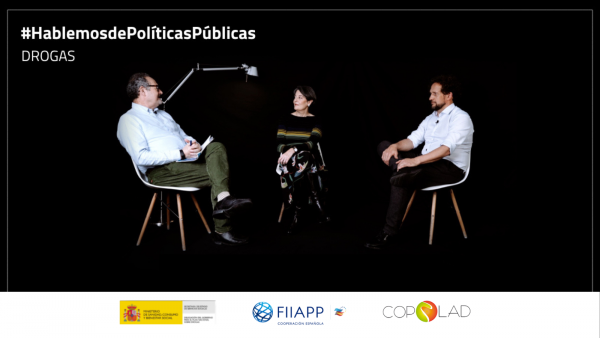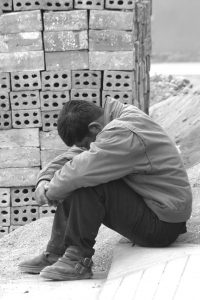-
13 September 2022
Category : Reportage
Cooperating on a global challenge: 36 million people suffer from drug use disorders
Global data on drug production, trafficking and problematic drug use show a worrying upward trend. The FIIAPP and the Government Delegation for the National Plan on Drugs have decided to strengthen our collaboration in 32 countries in Latin America and the Caribbean and 5 in Central Asia through two cooperation programmes. We will do it from a different approach: public health and human rights.

Public policies do not fit in a tweet, they cannot be told in 280 characters, and much more is needed to communicate their scope and action. For this reason, we are launching a series of conversations under the name ‘Hablemos de Políticas Públicas’ (Let’s Talk about Public Policy) in which, through the voice of experts, we delve into the scope of public administrations in different countries to share solutions to global challenges.
Challenges that can and should be addressed by public policies
We begin this cycle of conversations in collaboration with the Government Delegation for the National Plan on Drugs (DGPNSD) and we talk about #Drugs. A three-way conversation between Joan Ramón Villalbí, Government Delegate for the PNSD; Anna Terrón, Director of the FIIAPP; and Javier Sagredo, Director of the COPOLAD III cooperation programme on drugs.
Why public policies on drugs?
 The drug challenge is global, crosses borders and hits people all over the world hard. Moreover, it is predicted that by 2030, the number of people who use drugs will increase by 11%. This is a problem that public policies are taking on board and implementing, with increasing progress, strategies that attempt to respond to it.
The drug challenge is global, crosses borders and hits people all over the world hard. Moreover, it is predicted that by 2030, the number of people who use drugs will increase by 11%. This is a problem that public policies are taking on board and implementing, with increasing progress, strategies that attempt to respond to it.
Along these lines, Javier Sagredo stressed the importance of “appealing to the urgency of humanising politics more” and emphasised that a review is necessary, given that “recipes have always been closely linked to being very hard on the weak and very weak with the hard” and “this is part of the review that we have to carry out in order to achieve the opposite”. Furthermore, he stressed that the community responses developed in Latin America and the Caribbean are an inspiration, since they have built models of public policy.
The truth is that data on drug production, trafficking and problematic drug use show a worrying overall upward trend: 36 million people worldwide suffer from drug use disorders. Moreover, according to some estimates, drug trafficking is worth between $426 billion and $652 billion a year – the equivalent of Sweden’s GDP.
For this reason, the COPOLAD III programme, led by the FIIAPP in consortium with the Italian-Latin American Institute (IILA) and financed by the European Union, has been working for more than ten years with the DGPNSD and other partners to promote dialogue and cooperation between the European Union and Latin American countries.
South America is the origin of coca leaf, coca paste and cocaine hydrochloride production worldwide and in some Latin American and Caribbean countries, 80% of women deprived of liberty are deprived of liberty for minor drug offences.
Women need a specific approach
The approach that has guided public policy on drugs has largely focused on men’s problematic drug use, with insufficient attention paid to women, who also suffer from drug use disorders.
Feminism has changed some of the parameters for the development of new public policies. “Our cooperation is feminist”, emphasised Anna Terrón, and it is this dimension that has led to the development of new strategies and ways of responding to women’s problematic drug use.
In the words of Joan Ramón Villalbí, “the reality is that women traditionally have a lower consumption of drugs, but those who have a problem have a more serious problem and encounter barriers in accessing services, which have not been designed for them, but for men”. He added that it is women who encourage many men to seek help when they have a problem with drug use, but “who accompanies women who have a problem? Although this situation is less frequent in women, “it is perhaps more complicated for those who have a problem to find a way out”, said Villalbí.
The views and opinions expressed in this blog are the sole responsibility of the person who write them.






